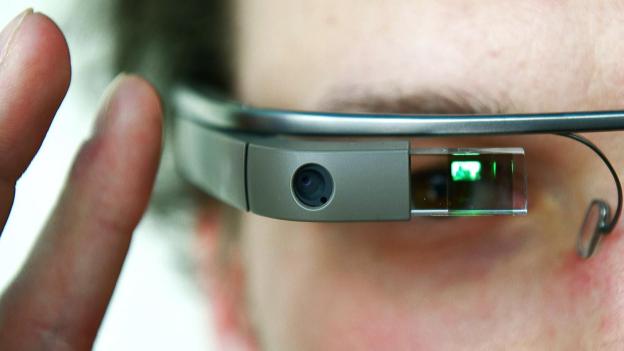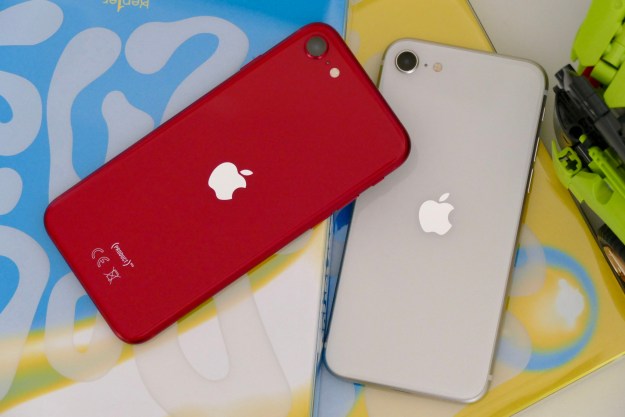
Google Glass is weird. No, not because it’s a smartphone that you wear on your face. (OK, that too.) But because of its peculiar release: Rather than keep the product a secret, or simply send out a few teasing press releases, Google instead released Glass to around 2,000 developers and tech-world tastemakers, while leaving the rest of us to gawk at their creation from afar.
This was a brilliant move. By only unleashing Glass to a select few, Google accomplished a dizzying array of goals all at once. First, it gave Glass an air of exclusivity, which makes the device “cool,” at least in theory. Second, it generated a massive influx of free marketing for a product that will likely cost as much as a laptop when it arrives for the masses sometime next year. Third, it gives a swath of developers time to create all sorts of new apps for Glass. Fourth – and this is the most brilliant part – it let us get comfortable with a product that could potentially create some of the worst privacy violations of any piece of hardware on the market.
Google Chairman Eric Schmidt admitted as much during an interview with NPR’s “Wait Wait… Don’t Tell Me” this weekend, after host Peter Sagal asked Schmidt what Google would “use this amazing invention for.”
“Well, we don’t quite know yet,” said Schmidt. “We have maybe 2,000 of these. We’ve shipped them out to developers, and we’re seeing what they develop. There’s obviously issues, shall we say, of appropriateness of how people are going to use these things. There’s a right time to have Google Glass on, and there’s a right time to have it off, if you take my drift. … So kind of watch and see what people do with it and then decide what to do.”
Being recorded by Glass will just become normal – and that’s when privacy will have truly perished.
“It is not interesting that you can modify the camera on your own device to take pictures without warning people: What is interesting is that with just a minute or two left alone with someone else’s Glass, you can modify it so that it takes pictures of them (and anything they interact with, allowing you to watch them type passwords, enter door codes, use keys, or even take notes using pen and paper) throughout their day without them ever knowing that you have done this,” Freeman wrote on Reddit.
Another developer whipped up an app, aptly dubbed Winky, which allows Glass users to snap a photo just by blinking an eye. And this week, a team of developers unveiled an app that gives Glass facial recognition abilities. Sure, the app, called MedRef, is only intended for doctors. But we’d be foolish to think that such capabilities will remain exclusively in physicians’ hands for long.
“First off, from the instant you slip Google Glass over your ears, you become the most conspicuous person in any room,” writes Oremus. “Heads turn. Eyes squint. Some people register confusion. Others break into excited smiles or hostile grimaces. What pretty much no one does, at least at this early juncture, is ignore you and continue to go about his or her business.”Now, none of this necessarily means that Glass is the “privacy nightmare” many believe it may turn out to be. Slate’s Will Oremus correctly notes that far more inconspicuous spying devices – like glasses, pens, and baseball hats with built-in cameras – are readily available for a fraction of the going price for Glass. And then there’s the fact that Glass looks, well, really obvious and dorky.
So on one hand, we have a bunch of potentially invasive Glass apps popping up every week. On the other, we have a device that draws more attention than a coked-up Lindsay Lohan.

What Glass apologists fail to consider is that spying – covertly monitoring others’ actions – is not the reason Glass is problematic for privacy. Instead, the biggest challenge for privacy posed by Google Glass is that we might all day become accustomed to the use of such a device. Sure, we might think people who wear them are “Glassholes” now. But five years from now? Probably not so much. The potential of being recorded by Glass will just become normal – and that’s when privacy will have truly perished.
On top of the problem of normalcy, we have the apps themselves. The good news is that, based on Schmidt’s explanation above, we can safely assume that Google is closely watching the development of all Glass hacks and apps, and will use that information to “close” many of the loopholes opened during this open testing period, before the company releases the product to the rest of us. That will help – but it will, by no means, stop the flow of potentially malicious apps. In fact, the exploit that allows hackers to make recording on Glass an invisible act has existed in Android for some time, so relying on Google to make Glass safe just isn’t realistic.
In the end, much of the hysteria around Glass is likely unfounded, at least in the short-term. And it’s not in any way certain that the device will catch on with the public at large. But if it does, and we all start to sport these specs, that’s when the real trouble beings.


